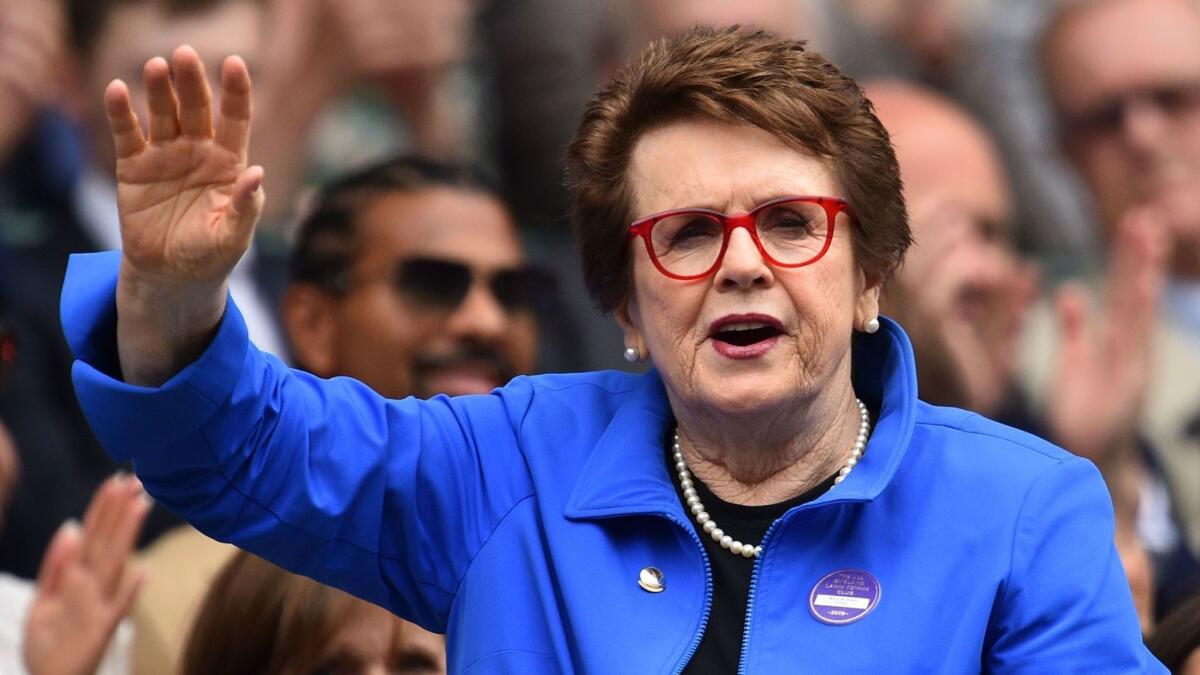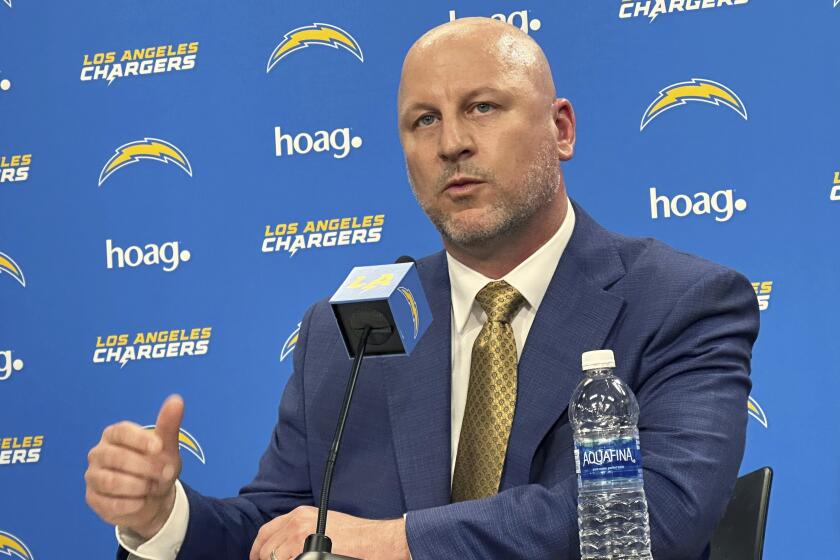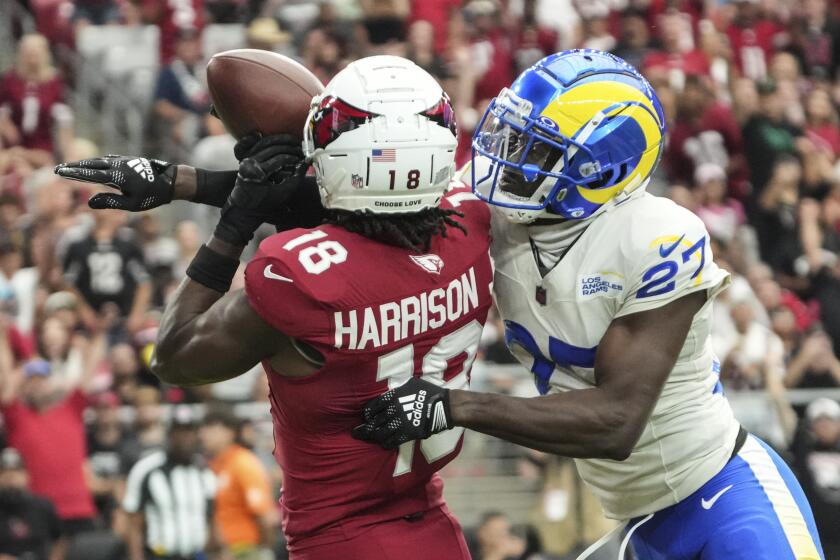Column: Billie Jean King adds her voice to the USWNT’s equal pay fight

Moments after the U.S. women’s national soccer team won the World Cup in France, a familiar chant began to rain down from the crowd at Parc Olympique Lyonnais.
“Equal pay! Equal pay!”
It would seem an appropriate chant given the complicated formula used to determine compensation for the U.S. women’s team, winner of back-to-back World Cups and four-time World Cup champions, and the U.S. men’s team, which failed to make the World Cup last year and has never advanced past the round of 16.
Twenty-eight members of the women’s team filed a federal gender discrimination lawsuit against the U.S. Soccer Federation in March. The lawsuit is headed to mediation later this year, but tennis legend Billie Jean King, who has long been at the forefront of the push for equality in sports, said mediation shouldn’t be needed for a situation that ought to have been resolved by now.
“I don’t know what’s going to happen or why it’s taking so long,” King told the Los Angeles Times. “They should make that announcement now. They would be such heroes and everybody would be happy.”
King, who was in Los Angeles to present the Billie Jean King Youth Leadership Award at the ESPN Sports Humanitarian Awards on Tuesday night, has been fighting for equal rights and equal pay for women since she started her tennis career as a 16-year-old out of Long Beach. When King won the U.S. Open in 1972, she received $10,000. The men’s champion that year, Ilie Nastase, was paid $25,000. King said she would not play the following year unless the prize money was equal, and in 1973 the U.S. Open became the first major tournament to award equal prize money for male and female champions. Wimbledon was the last Grand Slam event to follow suit in 2007, making tennis one of the few sports to pay men and women equally.
“I just think in everything we do, whether it’s work, sports or anything else, the pay should be equal for men and women,” King said. “I don’t think we should ever look at the men and say they deserve more, it should all be equal. You could get into a debate about men’s soccer and women’s soccer and how men’s soccer is older and more established, but it should be equal.”
Sign up for our weekly soccer newsletter » »
The U.S. women’s soccer team received $1.725 million for winning the 2015 World Cup, while the men’s team received $5.375 million for reaching the round of 16 during the 2014 World Cup. FIFA awarded $400 million in total prize money to participating soccer federations for the 2018 men’s World Cup and the winner, France, received $38 million. Meanwhile, FIFA awarded $30 million in total prize money for the 2019 women’s World Cup and the U.S. team was awarded $4 million for winning the tournament. FIFA president Gianni Infantino said the prize money will double for the next women’s World Cup in 2023, but King said that should have happened already and noted that the large disparity won’t be resolved by doubling or even quadrupling the prize money.
“The women were fantastic in France and deserve to be treated equally,” King said. “It would really be helpful if FIFA would just make an announcement that the pay will be equal for men and women. They make a lot of money and they have the ability to do that. I went and talked to FIFA four years ago and asked on behalf of all the women soccer players that they step up and we’re all still waiting.”
There’s no denying the popularity of the U.S. women’s team. Sunday’s final against the Netherlands attracted over 14 million TV viewers, according to Nielsen ratings, making it one of the highest- rated soccer telecasts in the history of the sport in the United States. Viewership for the match, which kicked off at 8 a.m. on the West Coast, peaked at 19.6 million viewers. Last year’s men’s final between France and Croatia averaged 11.4 million viewers.
Despite all of this, the women aren’t asking to be paid more than the men, although they could easily make a case for that. They simply want to be paid the same as the men. It’s a fight that King fought and won for women’s tennis players nearly 50 years ago and that she understands must continue until women and men in all sports are treated and paid equally.
“People have a very different outlook now when it comes to equal pay,” King said. “In the old days it was a much different road. No one thought we should get paid equally. They didn’t care. That’s changed. It’s the right thing to do for everyone. Would you pay your little girl less allowance than your little boy? No. Let’s just do the right thing. It’s an issue everywhere, not just in sports. We have single mothers trying to support their families on less pay then men. It’s not right. We need everyone to step up and do the right thing.”
More to Read
Go beyond the scoreboard
Get the latest on L.A.'s teams in the daily Sports Report newsletter.
You may occasionally receive promotional content from the Los Angeles Times.











